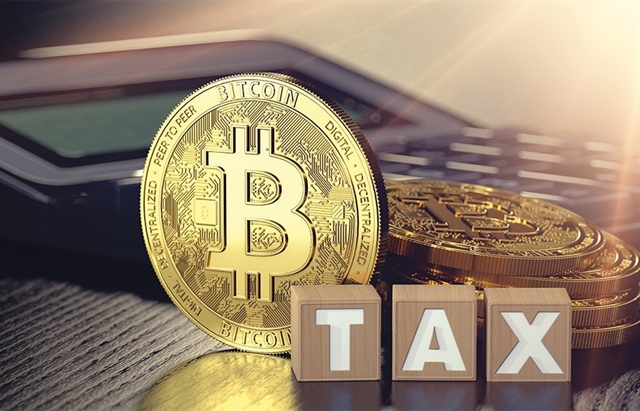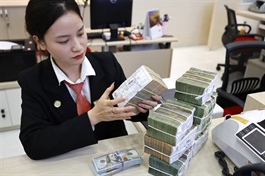Crypto clarity could offer fresh investment channels
Crypto clarity could offer fresh investment channels
Recognising cryptocurrency and building a comprehensive legal system will not only help Vietnam access foreign currency but also create an alluring environment for domestic businesses.
At a seminar on managing and operating centralised cryptocurrency exchanges last week in Hanoi, it was noted that around 6 per cent of the global population, equivalent to 617 million people, are trading in the virtual asset market with a trading volume hitting $200 billion per day.

Crypto clarity could offer fresh investment channels, Photo: Shutterstock |
Vietnam, which had a market size of $105 billion in the 2023-2024 period and around 17 million people dabbling in cryptocurrency, currently ranks seventh in the world in terms of trading volume. The country has consistently been in the top five countries for digital asset adoption worldwide, according to Chainalysis, for the past four years, with two years at the top in 2021 and 2022.
According to cryptocurrency exchange Binance, trading volume from Vietnam accounts for about 5 per cent of total global transactions, but Tran Huyen Dinh, chairman of the Fintech Application Committee under the Vietnam Blockchain Association (VBA), the hosts of last week’s seminar, believes the actual number will be even higher.
“Although there is no legal framework yet, about 20 centralised cryptocurrencies and virtual asset exchanges have been operating secretly in Vietnam for many years. The law does not prohibit it, but also does not allow it, so these exchanges are operating in a grey area, with no specific legal entity,” he said.
Dinh added that the development of a pilot centralised cryptocurrency exchange is necessary and will help Vietnam achieve several goals, such as recognising the inhabitant tax, attracting international investors to Vietnam, and drawing Vietnamese investors back to the domestic market.
“The establishment of pilot cryptocurrency exchanges also brings a new investment channel for investors, helps mitigate legal risks for businesses that are already operating, and attracts more foreign capital,” Dinh stressed.
Cryptocurrency trading and digital asset issuance have been actively taking place in recent years. Quang Nguyen, CEO of MetaDOS, a company developing games combined with blockchain technology in Singapore, said government recognition of cryptocurrency assets will give blockchain projects in Vietnam additional support in terms of legal framework, helping to establish credibility and trust with global investors.
“However, due to limited access to capital and the short-term focus of project developers, as well as the negative perception of some previous ventures, not many Vietnamese digital asset projects have successfully launched on an international scale,” Nguyen added.
VanEck, a US-based asset management company, is considering a collaboration with SSI Securities Corporation to establish a Bitcoin fund in the country.
During his business trip to Vietnam two weeks ago, Jan van Eck, CEO of VanEck, also expressed his enthusiasm for Vietnam being on the brink of adopting blockchain and digital asset technologies.
“Positive changes in the US government’s stance on cryptocurrency have opened opportunities for connections between the regulatory bodies of both countries, which could help Vietnam reference and build an appropriate legal framework,” van Eck said.
His company has been building exchange-traded funds for investing in cryptocurrencies. Last year, it was approved in the United States to establish the VanEck Bitcoin Trust fund. The fund currently holds Bitcoin with a net asset value of approximately $1.19 billion.
According to the VBA, about 60 per cent of cryptocurrency in Vietnam is traded on centralised exchanges. However, due to the lack of a specific legal framework, these cryptocurrency assets are still not recognised on official financial systems.
VBA chairman Phan Duc Trung noted that promoting a pilot cryptocurrency exchange initiative alongside the push for the Law on Digital Technology Industry, which is expected to be passed in May, demonstrates the government’s strong determination to build a legal framework for digital assets.
“Legalising decentralised finance ensures the legality of cryptocurrency assets, while also helping Vietnam optimise resources from the rapidly growing crypto market and meet the government’s anti-money laundering commitments,” Trung said.
According to Google’s e-Conomy 2024 report for Southeast Asia, Vietnam’s digital economy is expected to have reached $36 billion in 2024 and could grow to as much as $200 billion by 2030.
Data from Mordor Intelligence also indicates that the global cryptocurrency market is currently valued at around $1.33 trillion and is expected to grow at a compound annual growth rate of 30.4 per cent.
- 16:22 04/04/2025

























